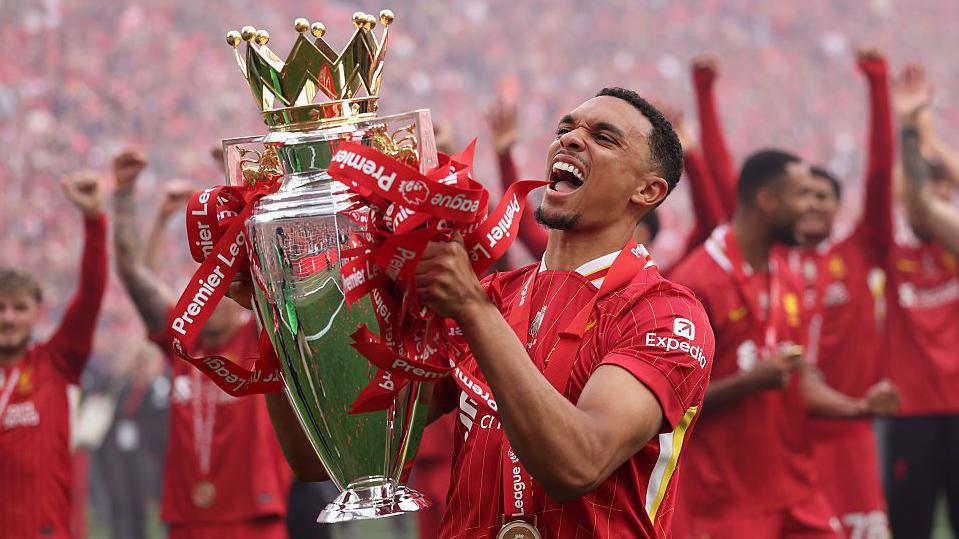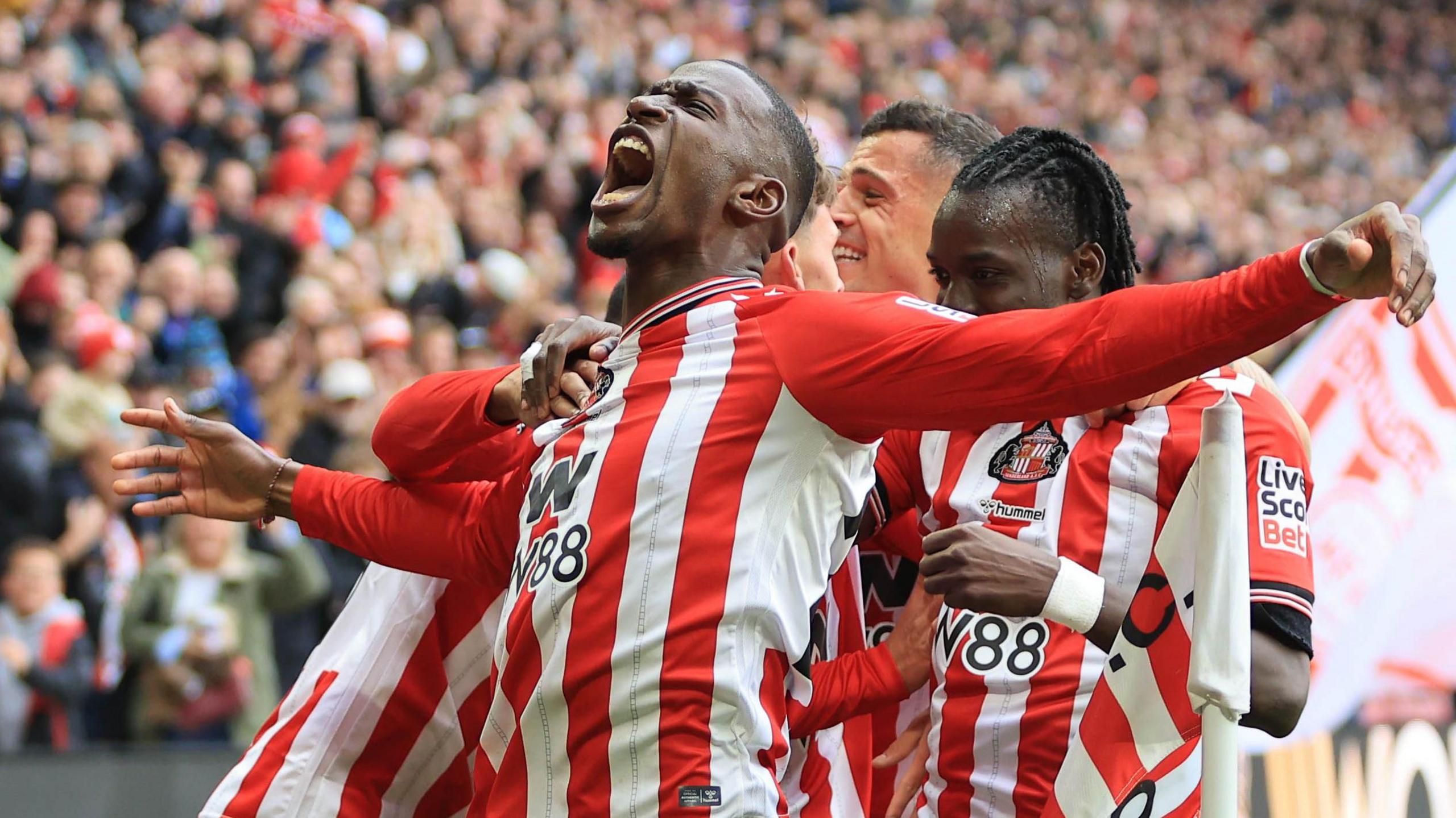- 1 Comments
Trent Alexander-Arnold returns to Liverpool for the first time since moving to Real Madrid on Tuesday, when he will discover if absence has made Anfield hearts grow fonder after the outpouring of ill-feeling that accompanied his decision to leave his boyhood club.
Alexander-Arnold fuelled anger among many Liverpool fans by announcing he was leaving at the end of his contract last summer, with supporters making their fury clear by booing him when he emerged as a substitute in the draw with Arsenal in May.
This was despite the 27-year-old – celebrated in song by the Kop as “the Scouser in our team” – having already played a pivotal role in bringing the Premier League title back to Liverpool.
He is in line to play for Real Madrid in the Champions League match after recovering from the hamstring injury that interrupted his start at the Bernabeu.
What reception will Alexander-Arnold get?
The smart money is on a mixed reception – with a section of Liverpool fans unlikely to forgive or forget the manner of his departure, initially on a free transfer, although Real later agreed a reported £8.4m fee to accelerate his arrival so he could play in the Club World Cup.
Feelings had cooled when Alexander-Arnold again came on as a substitute for Liverpool’s final home game against Crystal Palace, when the trophy was presented to captain Virgil van Dijk by legendary former Liverpool defender Alan Hansen.
The warmer response was, perhaps, a reaction to public admonishment from former manager Jurgen Klopp, who was angered by Alexander-Arnold’s vitriolic treatment from fans who previously idolised him.
Former Liverpool and England defender Stephen Warnock accepts Alexander-Arnold may not receive a rapturous welcome, telling BBC Sport: “I know local fans will say he was a Liverpool fan in a great Liverpool team, but sometimes players want something else. I respect that.
“I really hope he gets a good reception. I think he’ll want to put on a show, demonstrate why he’s such a talent, why Liverpool’s fans loved him so much.”
Warnock added: “I think the reception will be mixed. I don’t think he will be expecting a standing ovation after the way things went, and we have to respect those opinions as well.
“I don’t think he deserves a mixed reception. He was an incredible servant to the club, but wanted to challenge himself.
How much have Liverpool missed Alexander-Arnold?

The Alexander-Arnold-shaped hole in Liverpool’s team is one of the conundrums facing head coach Arne Slot as the near-£450m summer refit of his title-winning squad has struggled to gel, although Saturday’s 2-0 win against Aston Villa stopped the rot after six defeats in seven games, including four straight league losses.
Alexander-Arnold’s absence, however, has had an impact on all areas of Liverpool’s team, particularly Mohamed Salah’s influence.
Salah has struggled to hit his usual heights, although he scored his 250th Liverpool goal in the win over Villa.
It has trained the microscope on his previously potent partnership with Alexander-Arnold, a rich seam of goals and creation as Liverpool swept up their trophy haul under Klopp then Slot.
Alexander-Arnold’s world-class range of passing created space and opportunities for Salah, with opponents living in fear not only of what he might do himself, but also what he could unlock for the Egyptian.
Warnock said: “There is a great player in Conor Bradley, but he needs to stay fit and get a run of games to build up a relationship with Salah. These things can take time, even with the best players.
“Trent leaving has had an impact on Salah. Their partnership, if not exactly unnoticed, was almost taken as read. Yes, they are world-class individuals, but it was also a partnership.
“They really complemented each other. Trent could go inside, draw people towards him, which freed up more space for Salah. And when Salah drove at people he had the ability to feed Trent because teams were backing off.”
Alexander-Arnold’s comfort in possession with his fellow defenders, plus the ability to move into midfield, means his presence is also sorely missed elsewhere.
Warnock said: “I think Ibrahima Konate probably misses him as well. He knew he could give Trent the ball under pressure. I think it is having an impact on the right-hand side of the pitch, both in defence and attack.
“Liverpool also created a box system in the centre of midfield, which they did so well, when Trent was in the side.
“There was a lot of praise given to Alexis Mac Allister, Ryan Gravenberch and Dominik Szoboszlai, but Trent was a big part of that as well. Losing that extra body in the midfield area, when he was in there, is also missed because opponents were drawn to him, fearful of what he could create.”
Jeremie Frimpong, signed in a £29m deal from Bayer Leverkusen to compete with Bradley for the place vacated by Alexander-Arnold, has had his Anfield start curtailed by hamstring injuries.
Liverpool ‘100%’ missing Alexander-Arnold
As Liverpool’s title defence stalled before beating Villa, Alexander-Arnold’s ability to unlock defences may have aided them as, by Slot’s own admission, they have struggled against teams who defend deep and use long balls.
Warnock believes Liverpool are missing a creative source that can be placed in the same bracket as one of the Premier League greats, former Manchester City star Kevin de Bruyne.
He said: “Trent was a right-back, but effectively he was a midfielder [in] that position.
“I liken him to De Bruyne. I know they were different positions, but the way they pass the ball, the way they put fear into defenders with their ability to cross a ball or deliver a pass, is just incredible.”
Warnock added: “When Trent was at Liverpool, teams would back off. He was hitting balls over the top, trying to find killer passes. Even if he was a fraction off, the opposition were thinking ‘if he gets one of these right we’re in big trouble’.
“They drop deeper, then he was firing balls into Mac Allister on the half-turn, Szoboszlai, or last season Luis Diaz. He may not find that killer ball every time, but he strikes fear into defences, the fear that he will eventually get one right, which he so often did.
“I actually think this was the idea of bringing Florian Wirtz in, to open up defences.

Related topics
- Liverpool
- European Football
- Real Madrid
- UEFA Champions League
- Football














